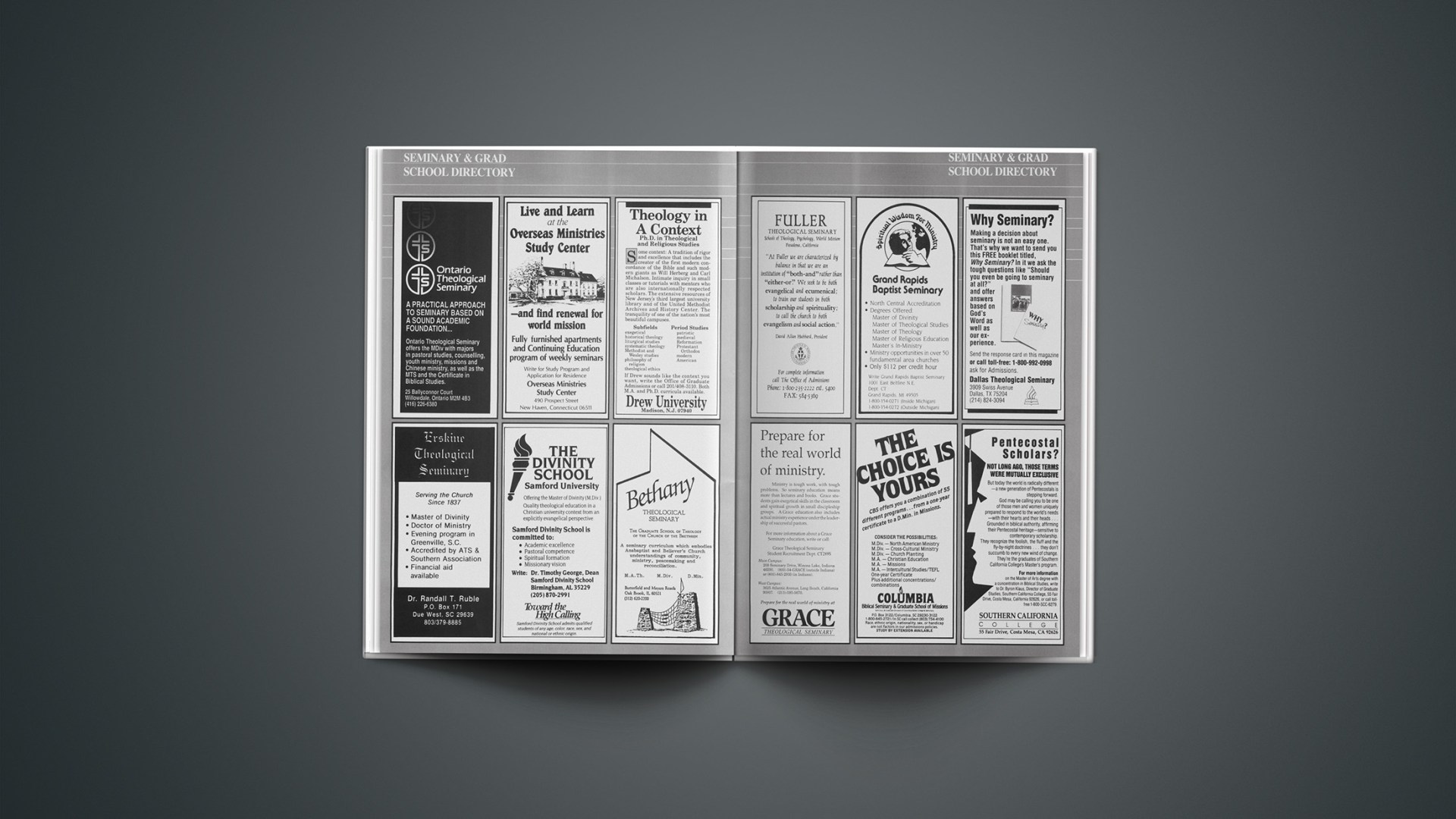This is a time of tragic irony for the right-to-life movement—for at the same time prolife activists are courageously escalating their fight for life, events and technology are conspiring to render such efforts moot.
Let me explain.
Last fall Operation Rescue hit the streets and television screens of America. During the last weekend in October, 2,212 prolife supporters were arrested for blocking access to abortion clinics in 32 cities, bringing to 7,000 the number of prolife arrests since the Democratic convention last July.
Why this sudden intensification of prolife commitment? This new willingness to sacrifice?
Some of the urgency may well come from desperation. After all the promises of the Reagan years, prolife forces have few victories to show for all their efforts. Few expect that George Bush will manage to get much of the social agenda that Ronald Reagan could not. Civil disobedience, for some, may vent years of frustration.
But from what I have seen of Operation Rescue, this is not the whole story. Their antiabortion sit-ins are not publicity stunts. They are attempts to save lives based on clear-cut beliefs. Christy Anne Collins, a prolife leader in the Washington area, has been jailed several times. As she describes her motivation, “The fact of the matter is, God said it’s a crime to shed innocent blood. I think we have to stop the killing. If we believe that abortion is murder, and I do, then I think we have to act like it is murder and try to stop it.”
Some Christian leaders have argued that Operation Rescue shows disrespect for the law. But to say that a law may never be violated under any circumstances is a form of extremism more disturbing than anything done by prolife activists. Certainly one could justly break a “no trespassing” law to save a child drowning in a lake; Operation Rescue, I believe, is the moral equivalent. Placing the value of a just law against trespassing above the attempted rescue of innocent lives is an inversion of Christian priorities.
It is a sad commentary that we live in a nation that puts such rescuers in jail. They are the most unlikely of prisoners. They are often intensely religious, both Protestant and Catholic. They have a deep respect for the law, though they value life more. They are nonviolent, but they are not easily intimidated.
These are, in short, the best of citizens—people who would be valued by any government under normal circumstances. But they populate our jails. It is a telling question: what kind of society would force its best citizens to violate the law as a matter of conscience?
But just as these principled protesters were indicting a calloused American conscience, events were taking place an ocean away that may soon render their protests impotent altogether.
On October 28, a day that saw a number of Operation Rescue arrests, the French government ordered a pharmaceutical company to resume distribution of RU 486—the abortion pill. Under pressure from prolife groups, the company had earlier withdrawn it; but France’s Socialist government ordered the drug back on the market, asserting that it was “the moral property of women.”
The pill, in effect, causes an early miscarriage. It means that a home abortion could eventually be as close as two tablets and a glass of water. It means fast, effective relief—like Alka Seltzer or Tylenol.
Certainly there are things that can and should be done to restrict the availability of RU 486 in the U.S. Experiments with the drug are already being conducted here, though it will be several years before it could be approved by the Food and Drug Administration. Prolife groups must make it clear to American politicians, health officials, and businessmen that this drug must not be legalized.
But the drug is already in use in China and Thailand. Populous Third World countries have made it clear they will be customers. Because it replaces surgery, the drug could easily be used on women who have little or no access to medical care.
And if RU 486 is used this widely, it would be impossible to prevent the creation of a black market. American demand would be high. Columnist Ellen Goodman comments, “Even if the opposition manages a legal ban, the abortion pill will become available. These pills are called in the trade ‘bathtub’ drugs; they are easy to make … Anyone who believes that we could control their importation hasn’t checked the cocaine business recently.”
Faye Wattleton, president of Planned Parenthood, gloats that “the right-to-life movement has seen its last gasp. If these drugs get to the market, the fight is finally all over.”
What response is left to us?
Of course we must fight for legal restrictions. But the effect of any law is bound to be limited, given the size of demand and the extent of legal distribution.
And of course we must continue to protest. But abortion clinics in the future may well be necessary only for the few. How do you intervene to save a life when an abortion is as near as the medicine cabinet?
What RU 486 will eventually mean, I fear, is a dramatic shift in the rules of the abortion battle. It will mean that our fight against abortion will no longer focus on the clinic, the dumpster, the Supreme Court steps. It will be relational and educational: Christians persuasively pressing the point among their peers that a life conceived is precious to God and must not be poisoned by a pill. The struggle will no longer be focused on legislatures and suction machines, but on people and the individual values they hold, the values that create their choices. What it means is changing the hearts and minds of a self-centered, callous generation.
That is a challenge perhaps even more daunting than the threat of a prison cell.









